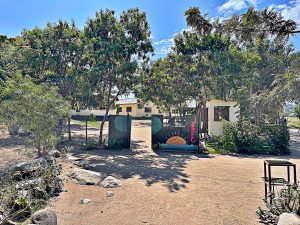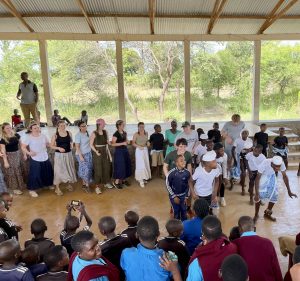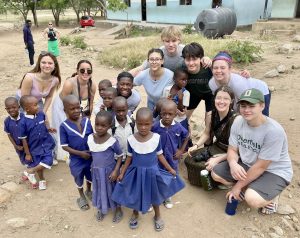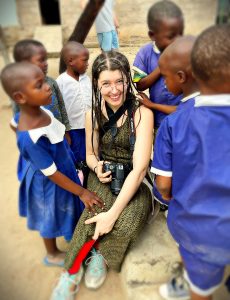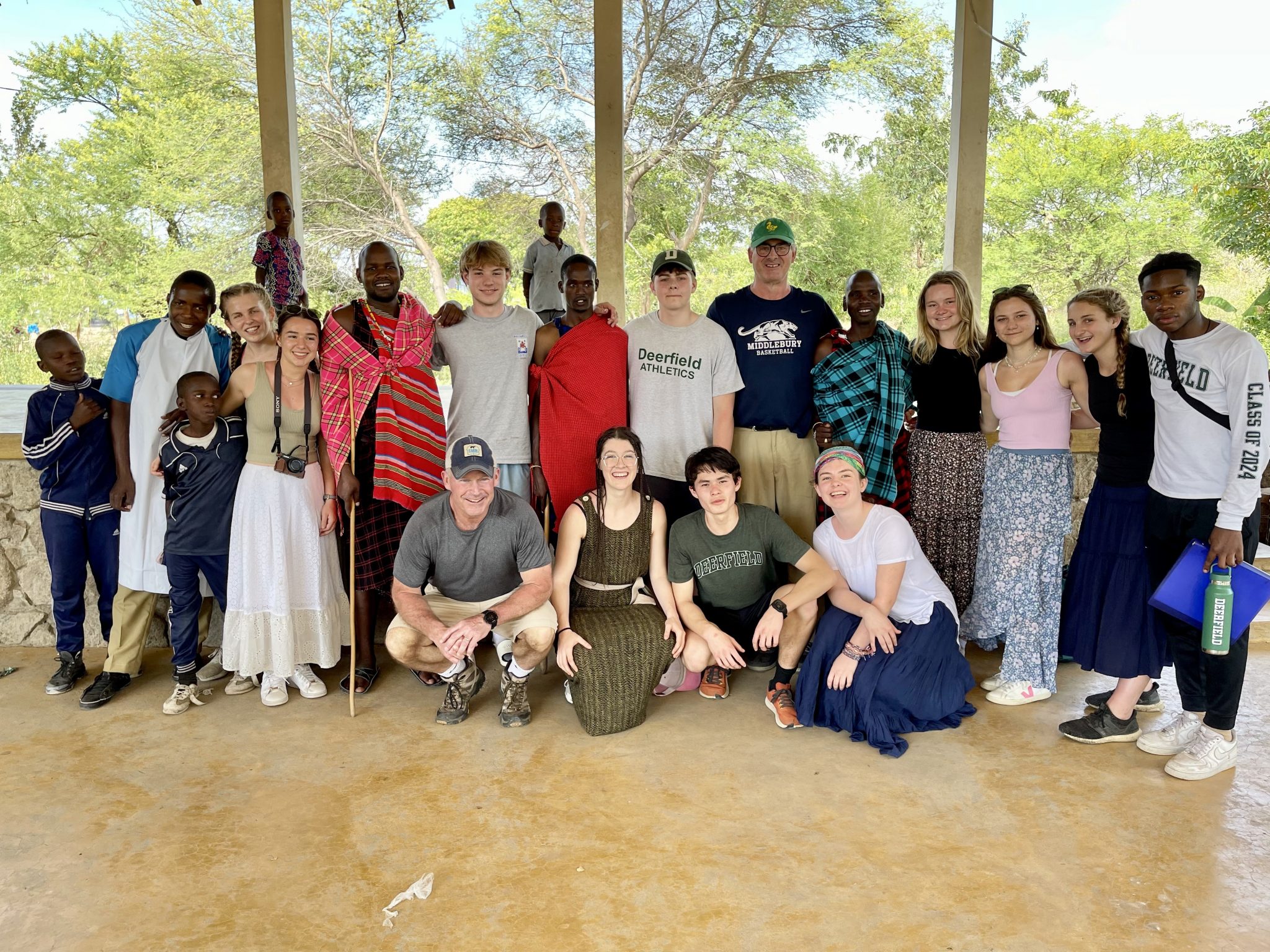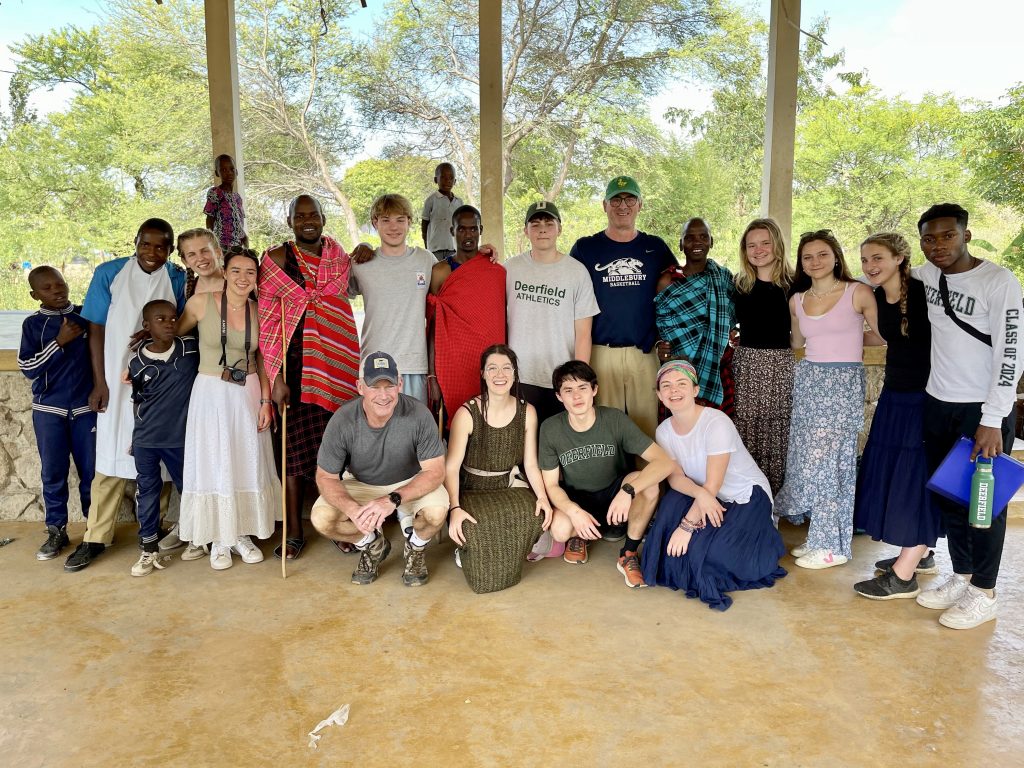Bianka Dusseault ’23, reflects on the experiences shaping her “Tanzanian story.”
Wild animals, tribes, and poverty—stereotypical visions engrained in Western culture. The Lion King provides kids with fantasies of the savanna, while western magazines and nature shows evoke sentiments of raw, natural beauty. As a young adult, I’ve come to imagine Africa as a white tourist and media consumer, unconsciously mistaking fiction for reality. Hollywood tropes merge together the vast differences across Africa in ethnicities, race, languages, values, and beliefs into a single identity—defining Africa as a country rather than a continent. As a result, Africa is historically generalized and modernly influenced by capitalists, bringing me back to roles of “white savior”, intruder, tourist, and ignorant individual. My relationship to Africa ties me to the first three. During this trip, I find myself in gray areas, filled with internal contradictions.
A glimpse of religion in my atheist self
God, Christianity, and churches have never been part of my upbringing, yet my mouth slowly, then quickly assembled the syllables of “Jesus” and “Amen” during the orphanage girls’ nightly prayer sessions. The high-pitch sounds mixes with the low-pitch tones to create a foreign symphony to my ear–one phonetically pleasing and physically assembling. The Swahili sentences momentarily shift my place of observer to one of a participant. As I sing and dance along, at this time and place, this cultural crossover feels right. And it feels right to pray. During prayer time, my connection to the girls is strengthened.
The discomfort from being from a first-world country
At other moments on this trip, my whiteness comes with awkward attention and privileges: students carrying chairs for us, utensils being provided for lunch, a special “Fun Friday” school assembly in our honor. My appreciation for these acts of kindness and gestures of cultural sharing are tempered by a feeling of being treated with unearned privilege and status. It leads me to question the genuiness of my interpersonal interactions and cultural discoveries. Are my experiences honest or tailored to please? I will never know the answer. Today, I’ve started opting for sitting on the ground instead of in a chair, eating with my hands, and learning traditional dancing.
Being a white curator
Candid. Group setting. Model poses. During our trip to the local government school–a small courtyard encircled by six classrooms filled by ten teachers and 800 students–the sound of a continuous stream of camera shutter clicks, mixed with the excited chatter, curious eyes and big grins of the students. Photography is a digitalized memory that cannot forget and I vividly remember the uneasy sentiment I have while participating in this endeavor as a tourist. I started to feel like a museum curator putting objects on display. I didn’t know these uniformed kids eager to pose for pictures, nor did I have time to form meaningful connections with them during our brief school tour. So, why was it so important to capture strangers’ faces? Was this really photo-journalism? My thirst to document felt wrong— in the student-filled yard and bustling classrooms. What are pictures without real emotions? I felt like a passive observer rather than an active participant in genuine human exchange.
Africa is a continent, Tanzania is a country
There is no singular African story, but an amalgamation of narratives shifting between touristic areas and rural settings. My presumptions of a yellow-grass country are challenged by the rich, dark soil and verdant green of Mainspring’s permaculture. My stereotypical views are constantly reshaped by the flow of events–sometimes being true, and sometimes being false. The generalization of Africa forget the subtleties of beliefs and values within each country, and most importantly the diversity of individuals. From young to old, individuals like: the girls from the orphanage such as Gertrude, Samantha, and Phoebe, Mainspring teachers like CJ, Jonas and Lazaro are at the heart of my Tanzanian experience. During our “Fun Friday” assembly, my body began to move to the student drummers’ beat. The traditional songs were coming from the soul, allowing me to experience a genuine thread of Tanzanian reality.
Self-reflection, personal growth, and service–these goals have framed my Tanzanian story. Embraced by the Mainsprings community, I am pushing past the boundaries of my comfort zone, thriving in the gray zones of my internal contradictions, questioning and learning from my experiences. I feel like this trip, while ending soon, is only the beginning. Thank you CSGC. I am grateful for the lessons I am learning from the students and community at large. I have a new lens on the world!
